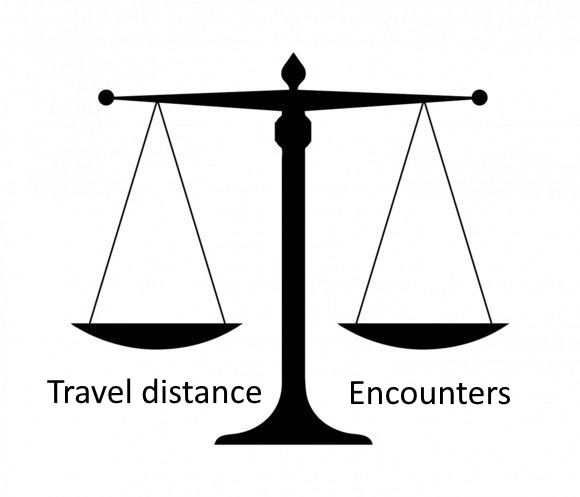This blog is just based on my own opinion, as a software engineer I do not have the qualifications to have a professional one.
The situation
Corona has arrived. The world has dodged the bullet with SARS and MERS, but the third time seems to be the charm, and a pandemic is rolling around the globe as I type this. Corona isn’t like the zombie virus from the movies, it’s closer to a standard influenza flue, except that the human world population has never encountered it before and thus no one has any immunity. The infection rate is higher than that of influenza.
Let’s examine some rough numbers, they don’t need to be exact for the point I want to make. Experts seem to agree that 60-70% of all people will get the corona virus. Given a country like the Netherlands with just over 17 million people, that will mean around 11 million people. About 80% of those will only get mild or moderate symptoms, which can go away in 3 days, but can also last up to two weeks. In any case no hospital care is required. It’s the remaining 20% that is the cause for alarm, because those need medical care. And with 11 million infected people, that would mean over 2 million people will be in the hospital. But our country only has 37.000 hospital beds. Total.
Now, those two million people will not become sick all at the same time, but assuming the severe cases are sick for two weeks, than we have 4 million hospitalbed-weeks to handle. This means that given the current capacity, we need 108 weeks worth of these 37.000 beds. Or in other words: we need to spread out the sick people over more than two years. And that is at 100% hospital capacity; there is no room for anything else in the mean time; no accidents, no cancer, no nothing.
Okay… So that is not going to work out. At all.
And even if those numbers are pessimistic, and we get only half or 1/4 of the infections, it still isn’t going to workout. So what to do? Shutdown a country or region completely? Well, there is the devilish dilemma that life every so often throws at us; the issue of opposing interest.
Opposing interests
Just for clarity: opposing or competing interest is the situation where you have two (or more) factors, which are about equally important, and trying to optimize for one will automatically decrease the other(s); you can’t have them all. This is one of the hardest situations to resolve, and the opposing interest here is called “economy”.
Our lives are part of an intricate machine; and in that machine you work, earn money, and then spent that money, so others earn money, all with the goal that at the end of the day we all have a place to sleep, and food to eat. If this interconnected network of gears, one turning the other, comes to a stop, then things will go down hill very quickly. It will make the 2008 financial crisis look like a walk in the park.
So any measures taken in light of the corona outbreak need to have a wider perspective than just the virus. Otherwise the consequences of the measures may be worse than those of the virus itself.
Striking a balance
So back to my country, I see that quest for striking a balance in the measures the Dutch government has issued. A summary is below:
- Everyone with typical corona symptoms needs to stay at home.
- No gatherings larger than 100 people.
- If possible work from home.
- People in high risk groups, avoid crowds like public transport.
- College’s and universities are closed, and should switch to online sessions.
- Primary schools and high schools remain open.
Hidden underneath all these rules is an unmentioned factor: travel distance. Because there are two things needed for a virus to spread: people and movement.
Looking at the measures with these two factors in mind, you can easily understand where they come from. For example working from home; usually the workplace is a place of gatherings and quite a number of business travelers. It’s a great place for a virus to spread. That said, going on vacation is even more so, so I’m actually amazed that “not going on vacation” is not on the list.
More interesting are the schools, but after some consideration that also is understandable: the people attending college and university often travel larger distances than the children on primary school, so that is a reason why the first are closed. But another factor is that closing all the primary schools would force many parents to stay at home to take care of their children, having a huge impact on the economy. So close the one, but not the other. Check. Middle schools are a bit of a grey area, children attending there don’t travel very far, but usually are old enough to take are of themselves when at home. So you could consider closing them.
There has to be a balance between the impact of the virus and the measures. And that is where the gatherings of up to 100 people comes from; this allows for restaurants and shops to remain open.
One of the things I do not understand are the measures our national basketball league has issued: they’ve cancelled all matches, which makes perfect sense with those teams driving around the country to get to the game. But also training is cancelled, and that usually is a very local activity, and those kids see each other in school anyhow! But alas, we follow the rules.
Should-I-do-it formula
So in order for a virus to spread, it needs to travel and it needs people. The more of both are present, the more people travel larger distances, the faster the virus will spread. If you reduce either factor, it will help. But as explained you can’t do it rigorously, because of the economy. So you as a person need to strike a balance between the distance you travel and the number of people you encounter.

If you travel far, you can’t meet anyone. But if you stay in your local neighborhood, do keep the economy rolling and go out to dinner. It makes perfect sense to me. One could even put it in a formula. Given:
- The distance ‘d’ you intent to travel (in km).
- The number of people ‘p’ you expect to encounter.
- And some corona outbreak factor ‘c’, 0.0 to 1.0, denoting how bad things are.
You could say that the should-I-do-it formula is:
100 - (10c * d * p) > 0
So if you stay put (d = 0) or there is no outbreak (c=0), then the outcome will be 100>0, so just do it. If you intend to go 1 km to meet 20 people, with a mild outbreak (c=0.2), then the outcome will be 100 – 40 = 60 > 0, do it. But if you drive 100 km to meet 20 people in a mild outbreak, the outcome will be 100 – 4000 = -3900, don’t. So shopping in your neighborhood? Yes, if it’s not too busy. Going to the big city to shop? No.
Of course this is not a real formula, it is just a geeky way of emphasizing the coupling between distance and encounters in relation to prevent corona spreading. But it also shows that certain businesses will be hit hard; those providing medium to long distance travels (airlines) and vacations. I see no way around that.
ZOC
Personally, I’m going to adhere to the rules my government has laid out. I recognize the balance they try to strike. But there are always what-ifs. The most important one being: what if some of the people you encounter do not adhere to these rules? Well. That would be bad. But I cannot be responsible for what other people do, otherwise all I can do is lay in bed watch Netflix… Which does have its appeal… But no, I can only do what falls within my zone of control (ZOC), and hope or convince others to do the same.
Update 2020-03-15 19:00
So people did not adhere to these rules. Belgians came to Holland because their cafes were closed, people from the South of the Netherlands went up north to party; distance traveled and a lot of people encountered. So now our restaurants and cafes are closed as well. Great. Thanks.
